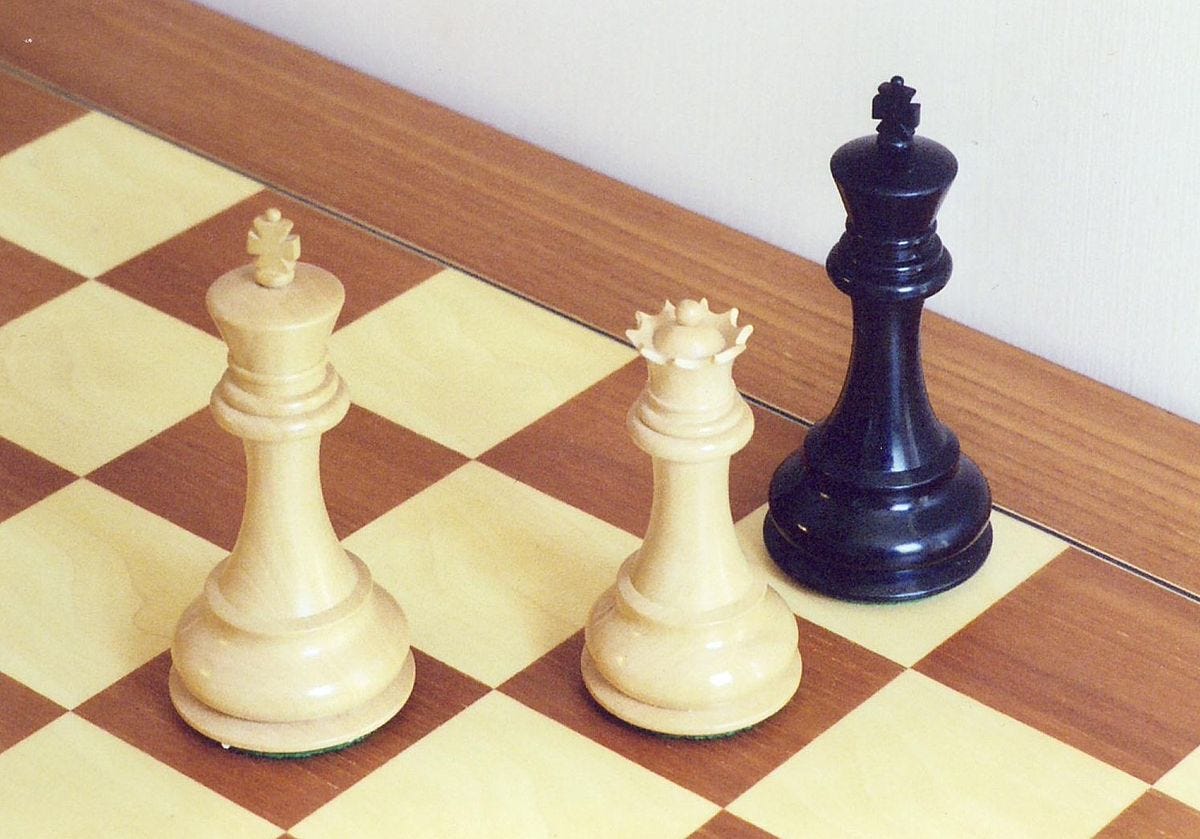Solar Zugzwang
“A day without sunshine is like, you know, night.” – Steve Martin
The best way to learn chess is to start with the endgame. Developing familiarity with the simple mating patterns that arise when there are few pieces left on the board is necessary to regularly convert an advantage into a win, and mastering this ability empowers a player to know when to trade down pieces during the midgame. Once winning endgames can be identified and the skill to trade into them is learned, a player can focus on studying opening theory, hoping to gain an advantage that can be pressed into the midgame. A player’s skill level is dictated by how much of an advantage they need to successfully press for victory, and the top grandmasters can win with an edge as small as a single tempo.
In chess, when it is your turn to move you have to make a move. In many endgames, players are forced into a situation where they have literally no good moves, and playing anything leads to a swift defeat. In such circumstances, the player is said to be in “zugzwang,” a word which is derived from the German words “zug” (to move) and “zwang” (compulsion). A quick resignation usually follows.
Aside from being a wonderfully sounding word, the concept of zugzwang routinely manifests in the real world. Our friend Luke Gromen has been describing the current predicament of global central bankers as a zugzwang, and we think the analogy is perfect (you can subscribe to Gromen’s spectacularly informative weekly newsletter here):
Recently, the Biden Administration found itself in a painful zugzwang of its own as it reached the end of a particularly sinister game of hypocrisy in the renewable energy sector. Matt Stoller, the left-leaning author of the brilliant Substack BIG, captured the consequences the move Biden chose beautifully via text exchange:
“It’s wildly illegal and embarrassing, an endorsement of slave labor, it helps a dangerous authoritarian government, and it won’t help deal with our energy problem. Other than that, it’s great.”
Let’s deconstruct the game being played.




